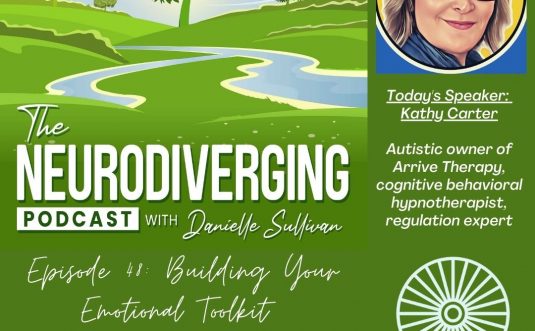Higher education can be a transformative experience, but for autistic adults, it often comes with unique challenges. Sensory sensitivities, navigating social dynamics, and managing unstructured schedules can make college feel overwhelming. But with the right strategies and support systems, higher education can be not only manageable but fulfilling.
Here are five detailed tips to help autistic adults overcome common barriers and thrive in higher education.
Contents
- 1 1. Leverage Campus Support Services
- 2 2. Establish Structured Routines
- 3 3. Create a Sensory-Friendly Study Environment
- 4 4. Develop Effective Communication Strategies
- 5 5. Build a Support Network
- 6 Additional Barriers and How to Address Them
- 7 Resources for Autistic Adults in Higher Education
- 8 Moving forward
1. Leverage Campus Support Services
Most colleges and universities have resources specifically designed to support students with disabilities. Autistic students can benefit from accessing these services early in their academic journey.
- Disability Services Office: Contact your campus disability services office to explore accommodations like extended test time, a reduced-distraction testing environment, or priority registration for classes that fit your schedule. These accommodations can make a significant difference in reducing stress and ensuring success.
- Mental Health Support: Many institutions offer free counseling or therapy sessions, which can provide valuable support for managing academic and social pressures. Some colleges also have peer mentoring programs where autistic students can connect with others who understand their experiences.
- Assistive Technology: Technology like note-taking apps, audio recorders, or captioning software can help with classroom learning. Ask your disability services office what tools are available for students.
2. Establish Structured Routines
Autistic individuals often thrive in environments with clear structure. However, autistic adults in higher education can feel unstructured and chaotic handling different educators, course expectations, and schedules, making it essential to create your own routines.
- Create a Weekly Schedule: Use a planner, digital calendar, or app to outline your weekly classes, assignments, meals, and downtime. Color-coding tasks or adding reminders can help keep everything organized.
- Break Tasks Into Steps: Long-term projects can feel overwhelming. Break them into smaller, manageable steps with specific deadlines. For example, if you have a research paper due, your steps might include choosing a topic, finding sources, creating an outline, and writing drafts.
- Plan for Transitions: Build buffer time between classes or activities to allow for breaks and reduce sensory overload. Having extra time to process or prepare can make transitions smoother.
3. Create a Sensory-Friendly Study Environment
The sensory environment of a college campus can be unpredictable, which may affect focus and productivity. Taking control of your surroundings is key to managing sensory sensitivities.
- Find Quiet Spaces: Look for designated quiet areas in the library or other campus buildings. Some campuses offer sensory-friendly zones for students who need them.
- Use Sensory Tools: Tools like noise-canceling headphones, sunglasses for harsh lighting, or fidget devices can help manage sensory input. These items are portable, making them easy to use throughout the day.
- Personalize Your Study Space: At home, create a dedicated study area tailored to your sensory preferences. Keep it tidy, ensure lighting is comfortable, and minimize background noise.
4. Develop Effective Communication Strategies
College involves a lot of communication, from working with professors to collaborating with peers. For autistic students, these interactions can sometimes be stressful, but preparation can make a big difference.
- Self-Advocacy: Practice explaining your needs to professors, classmates, or advisors. For example, if group work is challenging, you can ask to take on roles that suit your strengths, such as research or writing.
- Prepare Scripts: If certain conversations feel intimidating, prepare scripts ahead of time. For example, you might write down what to say when asking for an extension on an assignment or clarifying instructions with a professor.
- Communicate in Writing When Needed: If face-to-face communication is difficult, consider emailing professors or using note cards to communicate your needs. Written communication allows you to process your thoughts more thoroughly and reduces anxiety.
5. Build a Support Network
Having a strong support system can make college life feel less isolating. Surrounding yourself with understanding and supportive individuals can provide both emotional and practical help.
- Join Student Organizations: Look for clubs that match your interests, such as gaming, art, or advocacy groups. Many colleges also have organizations for disabled or neurodivergent students that can provide a sense of community.
- Connect with Peer Mentors: Some schools offer peer mentoring programs specifically for autistic students. These mentors can provide guidance on navigating campus life, managing coursework, and finding resources.
- Engage with Advocacy Groups: Disability-focused organizations on campus or in your community can be great resources for advice, workshops, and connections with other neurodivergent students.

Additional Barriers and How to Address Them
In addition to the above strategies, it’s helpful to anticipate some common challenges autistic students face in higher education and how to overcome them:
- Unclear Expectations: Some professors may assume students automatically know how to manage coursework or group assignments. Don’t hesitate to ask for clarification or examples if expectations aren’t clear.
- Social Fatigue: College often requires balancing academic and social interactions. Schedule downtime to recharge after classes, events, or group work. Prioritizing rest is just as important as academic success.
- Navigating Sensory Overload: Busy dining halls, crowded lecture halls, or loud dormitories can be overwhelming. Plan alternative dining times or ask for housing accommodations that provide quieter living spaces.
Resources for Autistic Adults in Higher Education
Here are some resources that provide additional guidance and support:
- Autism&Uni Toolkit: A practical guide for autistic students transitioning to higher education.
- National Autistic Society – Higher Education: Tips and advice for navigating college as an autistic student.
- Do-IT Profiler: Tools to help identify strengths and challenges for autistic students in higher education.
Moving forward
Navigating higher education as an autistic adult can be challenging, but you don’t have to do it alone. By using the strategies above and taking advantage of campus resources, you can build a fulfilling and successful college experience.
What tips have worked for you in higher education? Share your experiences in the comments, or explore Neurodiverging for more resources and coaching tailored to autistic adults.


 Sophia K
Sophia K


